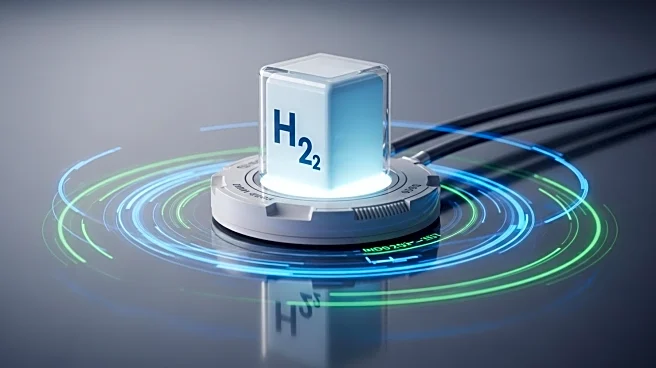What's Happening?
Scientists have discovered extensive natural hydrogen reserves beneath the Earth's surface, which could provide energy for up to 170,000 years. This finding, detailed in a study published in Nature Reviews, suggests a shift towards extracting naturally occurring hydrogen as a cleaner alternative to current fossil fuel-dependent methods. The study identifies two main mechanisms for hydrogen generation: water-rock reactions and radiolysis. These processes occur over geological timescales, offering a unique opportunity for energy production with a reduced carbon footprint. Geological settings for hydrogen accumulation are found globally, indicating universal accessibility.
Why It's Important?
The discovery of natural hydrogen reserves presents significant economic and environmental benefits as a clean energy source. With a carbon footprint comparable to or better than 'green' hydrogen made from renewable electricity, natural hydrogen could become a competitive alternative to fossil fuel-derived hydrogen. Cost estimates suggest production could be economically viable, supporting industries and transport sectors challenging to decarbonize with electricity alone. If exploration and extraction technologies advance, natural hydrogen could significantly contribute to the global energy transition, offering a pathway toward a greener energy future.
What's Next?
Despite the promising potential, extracting natural hydrogen faces challenges, such as the rarity of high-purity accumulations and the non-renewable nature of production on human timescales. Advancements in exploration and extraction technologies are needed to overcome these hurdles. Researchers continue to explore this resource, aiming to develop the technology and infrastructure required to harness Earth's hidden hydrogen reserves effectively.
Beyond the Headlines
The discovery of natural hydrogen reserves could trigger long-term shifts in energy production, reducing global carbon emissions and supporting the transition to cleaner energy sources. Ethical and environmental considerations will play a role in developing sustainable extraction methods, ensuring the benefits of this resource are maximized while minimizing ecological impact.








